Abstract
The filter exclusion method was used to isolate Frankia strains from Myrica pennsylvanica (bayberry) root nodules collected at diverse sites in New Jersey. A total of 16 isolates from five locations were cultured. The isolates were characterized by morphological, chemical, physiological, and plant infectivity criteria and compared with genomic DNA restriction pattern data, which were used to assign the isolates into gel groups (see accompanying paper). The isolates from M. pennsylvanica evaluated in this study were characteristic of Frankia physiological group B strains and were indistinguishable on the basis of whole-cell wall chemistry and diaminopimelic acid isomer analysis. Distinct differences in the spectrum of utilized organic acids and carbohydrates were observed among the isolates and were the only phenotypic criteria by which the isolates could be separated and assigned into separate groups. In general, isolates within a restriction pattern gel group had identical utilization patterns, whereas intragroup isolates had different utilization patterns. Correlation of these phenotypic characteristics with the results of molecular analysis revealed an exclusive carbohydrate and organic acid utilization pattern for each gel group as established by restriction pattern analysis.
Full text
PDF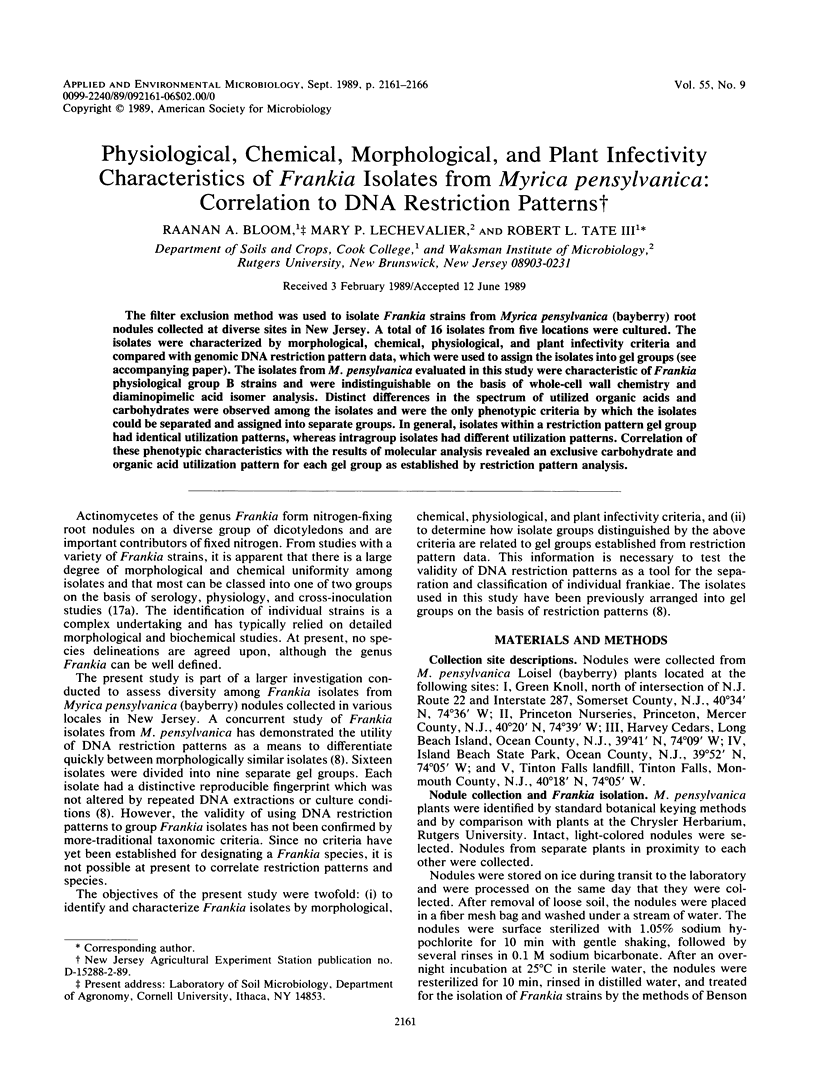
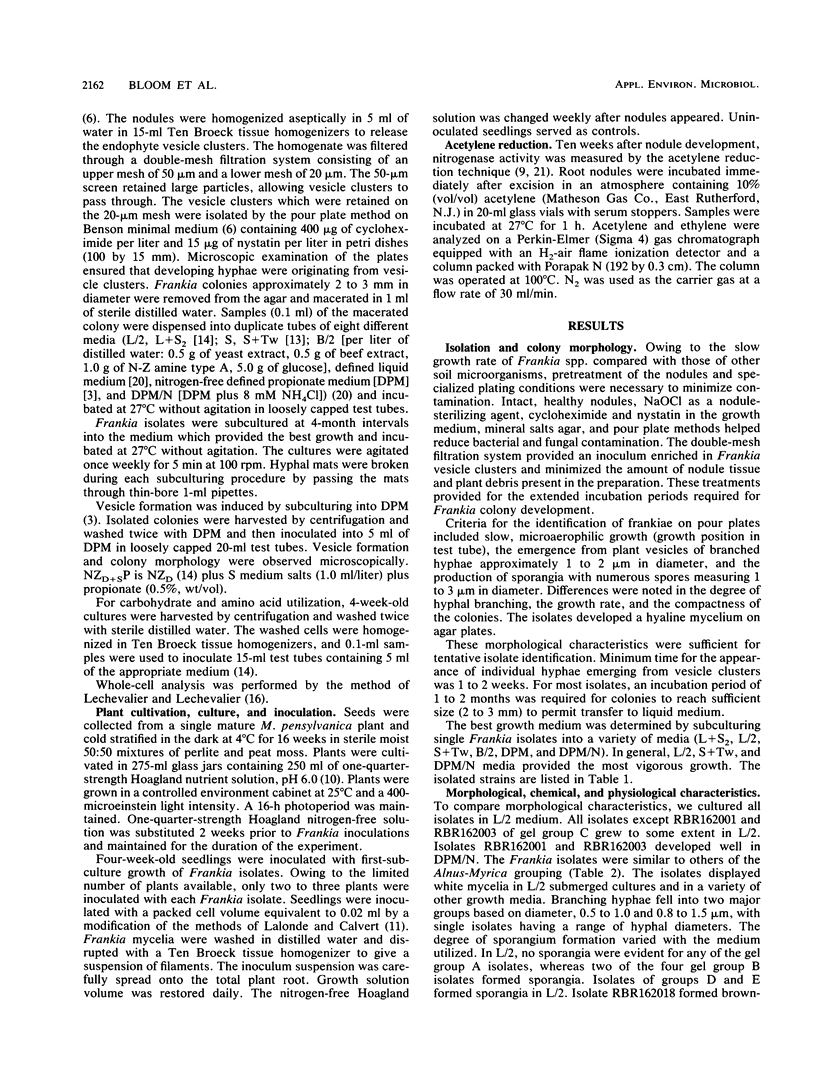
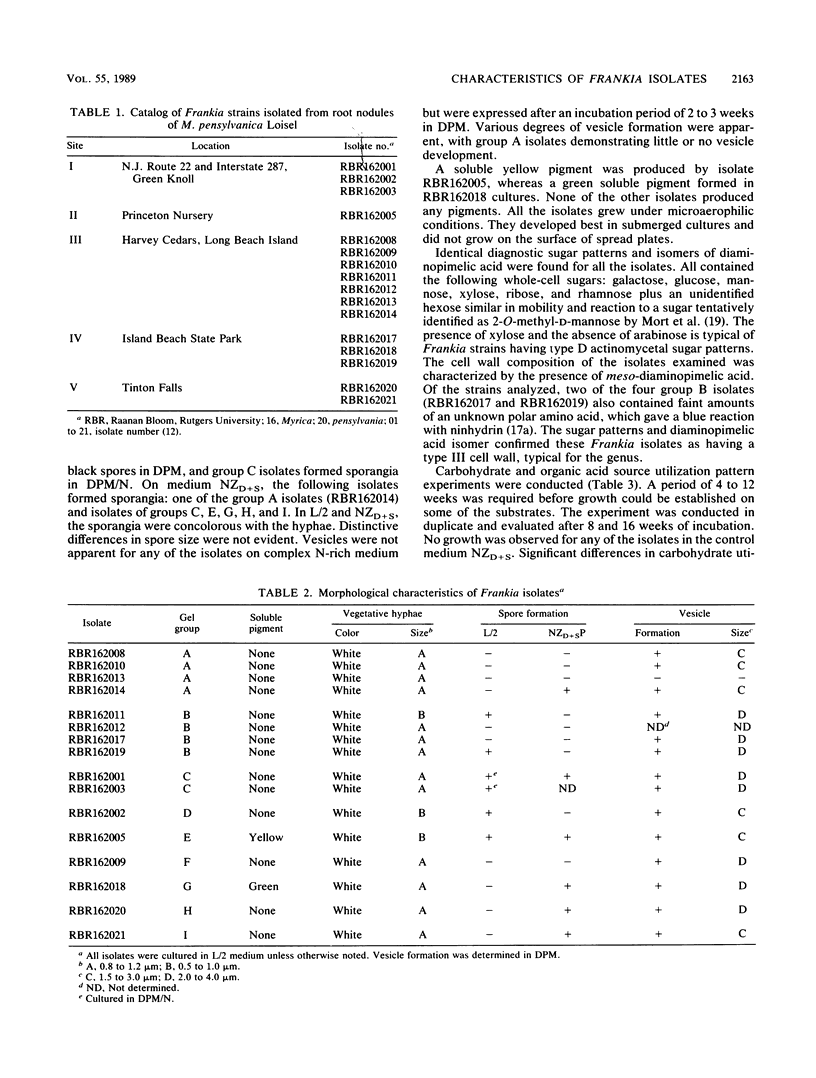
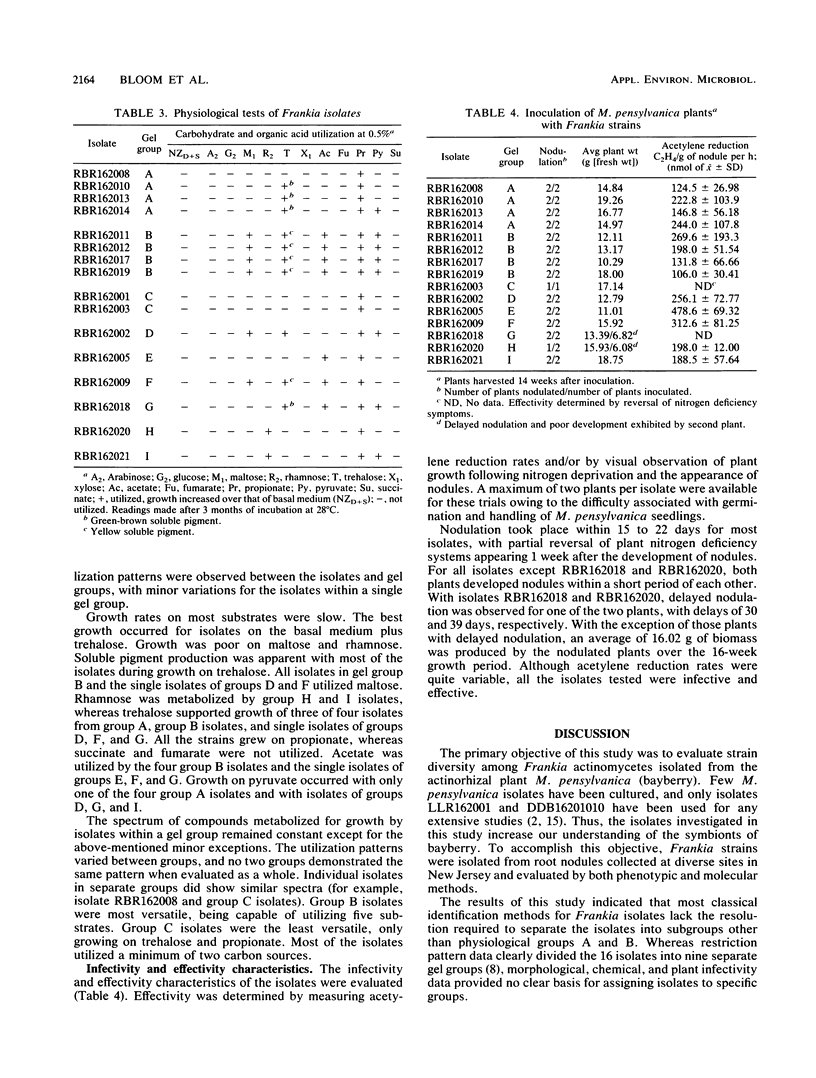
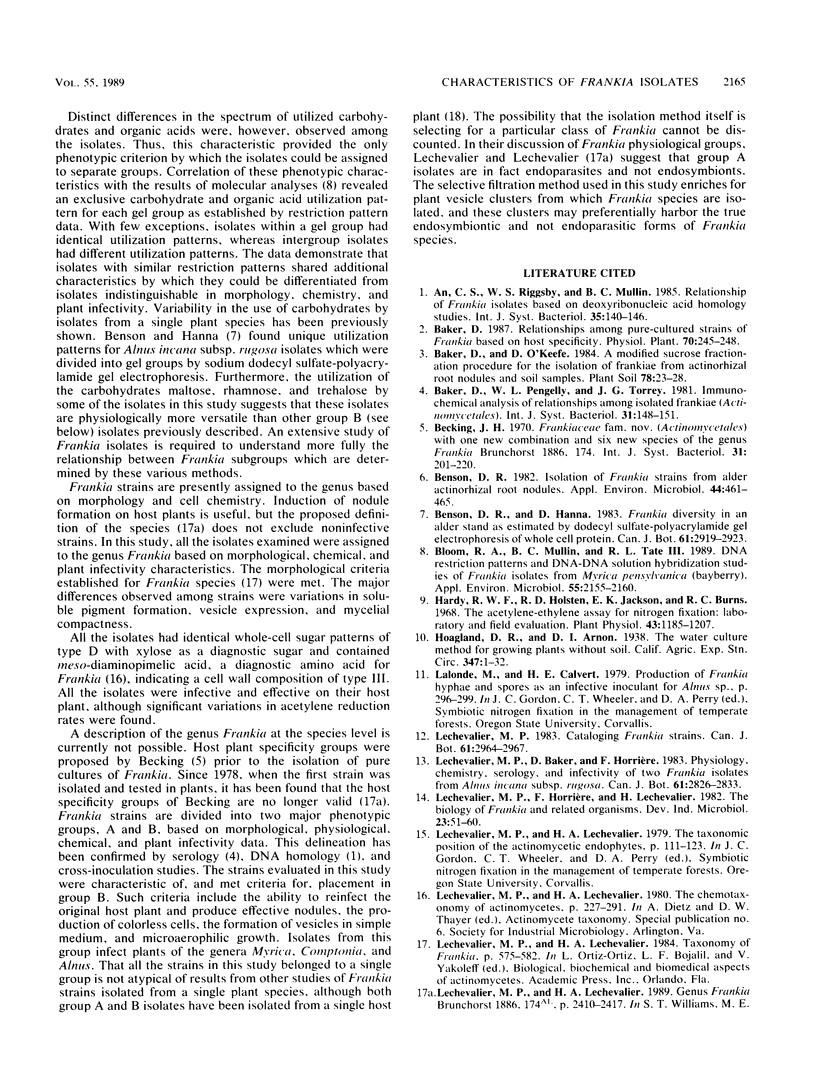

Selected References
These references are in PubMed. This may not be the complete list of references from this article.
- Benson D. R. Isolation of frankia strains from alder actinorhizal root nodules. Appl Environ Microbiol. 1982 Aug;44(2):461–465. doi: 10.1128/aem.44.2.461-465.1982. [DOI] [PMC free article] [PubMed] [Google Scholar]
- Bloom R. A., Mullin B. C., Tate R. L., 3rd DNA restriction patterns and DNA-DNA solution hybridization studies of Frankia isolates from Myrica pennsylvanica (bayberry). Appl Environ Microbiol. 1989 Sep;55(9):2155–2160. doi: 10.1128/aem.55.9.2155-2160.1989. [DOI] [PMC free article] [PubMed] [Google Scholar]
- Hardy R. W., Holsten R. D., Jackson E. K., Burns R. C. The acetylene-ethylene assay for n(2) fixation: laboratory and field evaluation. Plant Physiol. 1968 Aug;43(8):1185–1207. doi: 10.1104/pp.43.8.1185. [DOI] [PMC free article] [PubMed] [Google Scholar]
- Noridge N. A., Benson D. R. Isolation and nitrogen-fixing activity of Frankia sp. strain CpI1 vesicles. J Bacteriol. 1986 Apr;166(1):301–305. doi: 10.1128/jb.166.1.301-305.1986. [DOI] [PMC free article] [PubMed] [Google Scholar]


